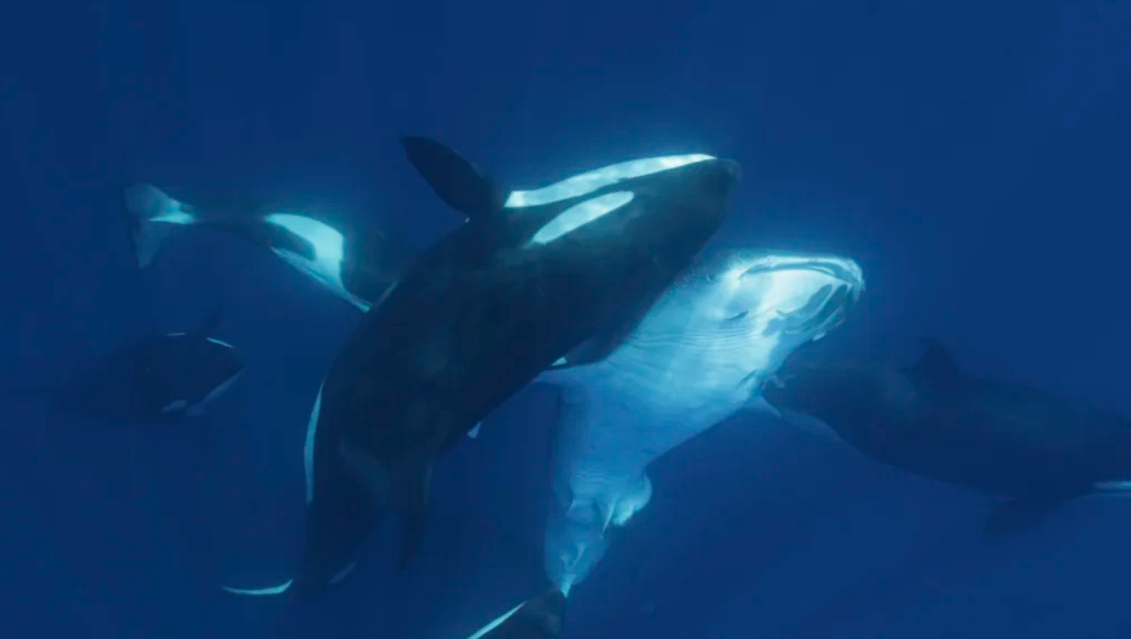A group of orcas in the Pacific Ocean off the coast of Mexico have discovered a strategy to hunt whale sharks – the world’s largest fish – a new study has revealed. These sharks can grow up to 18 meters (60 feet) long. There have been stories of orcas hunting whale sharks in the past, but now scientists have studied their behavior in detail for the first time.
Between 2018 and 2024, four different poaching incidents were observed and captured on camera. With the help of these videos and photographs, the researchers understood the hunting pattern.
Whale sharks congregate mainly in the Gulf of California area to feed. However, these sharks are not fully developed and are only about 3 to 7 meters (10 to 23 ft) long, making them easy targets for hunters. The Orcs have easily tamed these gentle species.
“The whale shark’s brain is very small compared to its body, which is only about the size of an egg,” said Francesca Pancaldi, the lead author of the study. Their main defense is to move the body or dive into deep water to get away from the enemy.”
According to the research, groups of orcas attack whale sharks first and then turn them upside down, preventing the shark from swimming deeper. The orcas then bite the shark’s stomach, causing blood to flow, and then the internal organs are eaten.
Eric Higuera Rivas, a researcher involved in the discovery, said that the orcas involved in the hunting process were identified by features on their dorsal fins. Three of the four incidents reported the presence of a male orca named “Moctezuma”, which is about 8 meters (26 feet) long. At one point he was accompanied by a female orca, who is likely related to him.
The research also revealed that orcas specifically target the large and nutrient- rich liver of the shark’s body. However, researchers were unable to directly observe the orcas consuming these organs.
“Orcas have been shown to prey on sharks for their fatty livers before, but this is the first clear record of whale sharks,” said Sarah Teman, a scientist at the University of Washington.
Even in South Africa, orcas have developed techniques for hunting great white sharks, which have led to the disappearance of these sharks from parts of the ocean. However, Pancaldi explained that the whale shark population in the Gulf of California has not been significantly affected by orca hunting.
This phenomenon adds to the recognition of orcas’ hunting skills and provides insight into the complexity of ocean ecosystems.













